Overview
As part of the Municipal Climate Change Action Centre’s Solar for Schools Program, the Calgary School District No. 19 installed a total of 2.51 MW of solar on 15 Calgary Public Schools.
Kenneth D. Taylor School – 159 kW
Copperfield School – 132 kW
Marhsall Springs School – 200 kW
Clarence Sansom School – 133 kW
Christine Meikle School – 191 kW
Auburn Bay School – 170 kW
Sir Winston Churchill High School – 455 kW
Branton School – 144 kW
Captain John Palliser School – 156 kW
Dr. George Stanely School – 200 kW
Griffith Woods School – 228 kW
Peter Lougheed School – 196 kW
King George School – 29 kW
Hillhurst School – 14 kW
Queen Elizabeth School – 100 kW
The solar PV system will generate 3,001,344 kWh of electricity per year, saving School District No. 19 around $300,000 in energy costs per year. Approximately 36% of project costs were covered by the Solar for Schools Program. This project was funded by the Government of Alberta.
Approach
The project was initiated in the summer 2022 and was completed in the winter of 2024.
Results
The project is expected to reduce emissions from the schools by 1,711 tonnes of CO2e per year, which is equivalent to removing 524 passenger vehicles from the road. With the project complete, education around renewable energy will be integrated into the school curriculum where students will learn how solar energy technology functions and the different types of solar PV installation. Students will also gain insights into the conversion of solar energy into electrical and thermal energy.
We have made commitments in the Calgary Board of Education’s Sustainability Framework 2030 to reduce GHG emissions and increase school energy generation from renewable energy systems. Through this initiative, we are able to offer real-life student learning opportunities in a way that models the behaviour students will need to contribute to a sustainable future.
Olena Olafson, CBE Sustainability Coordinator
The entirety of the process has made the learning for the students involved meaningful, challenging, and connected to the world around them. Students were motivated to explore, learn, and apply their knowledge to solve problems in their world.
Teacher, Hillhurst School
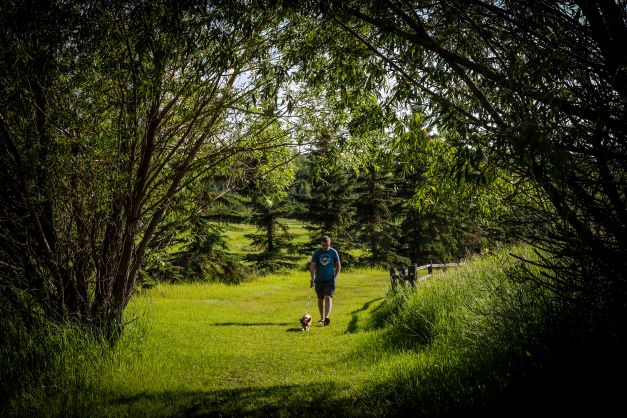
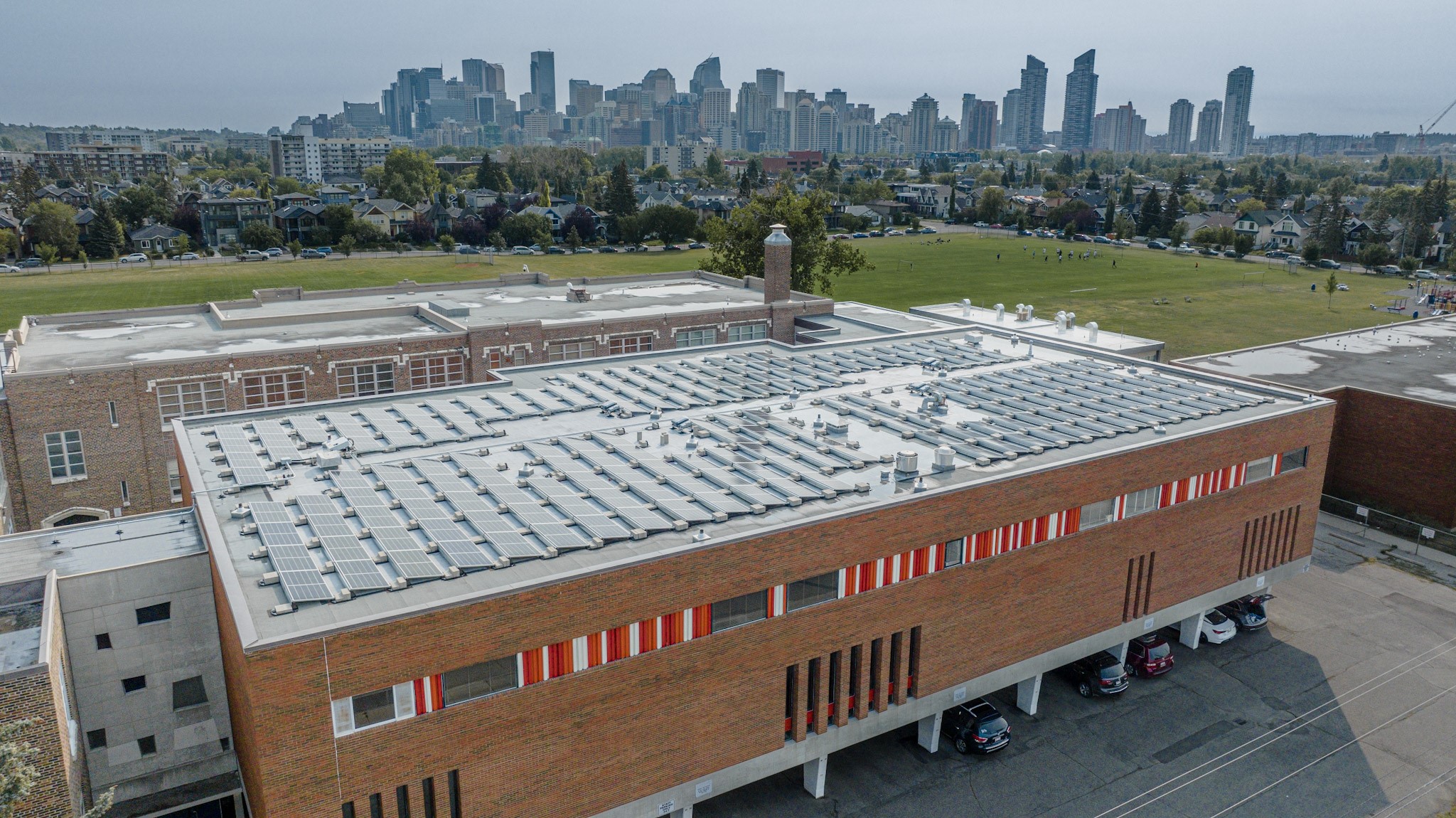
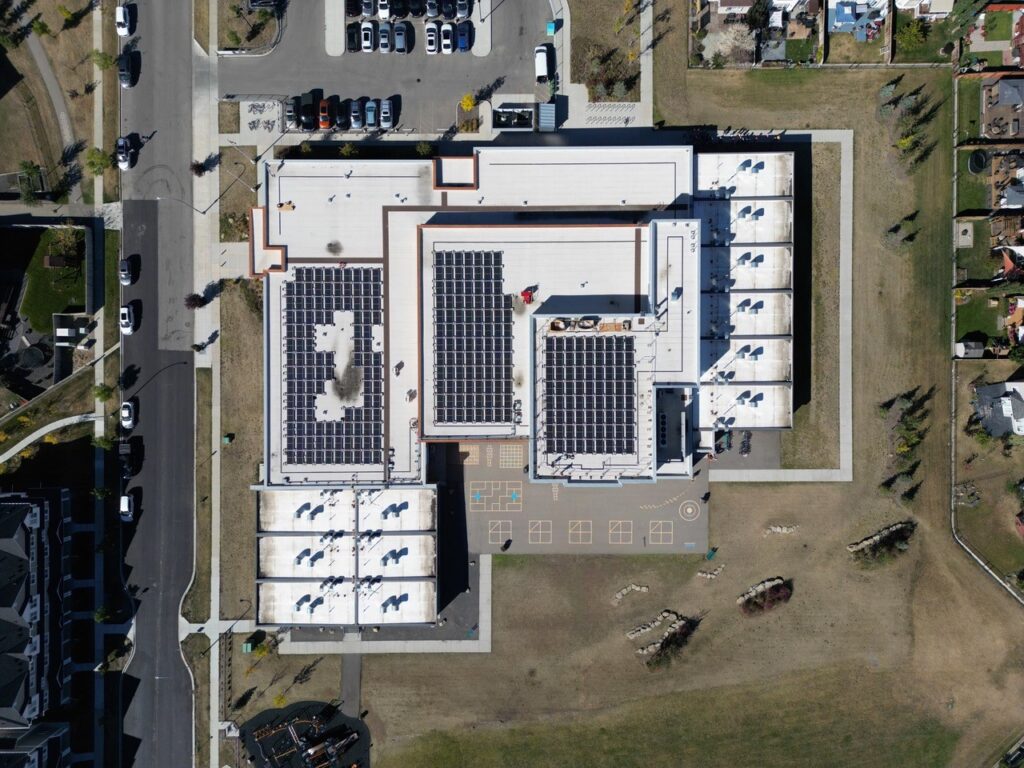
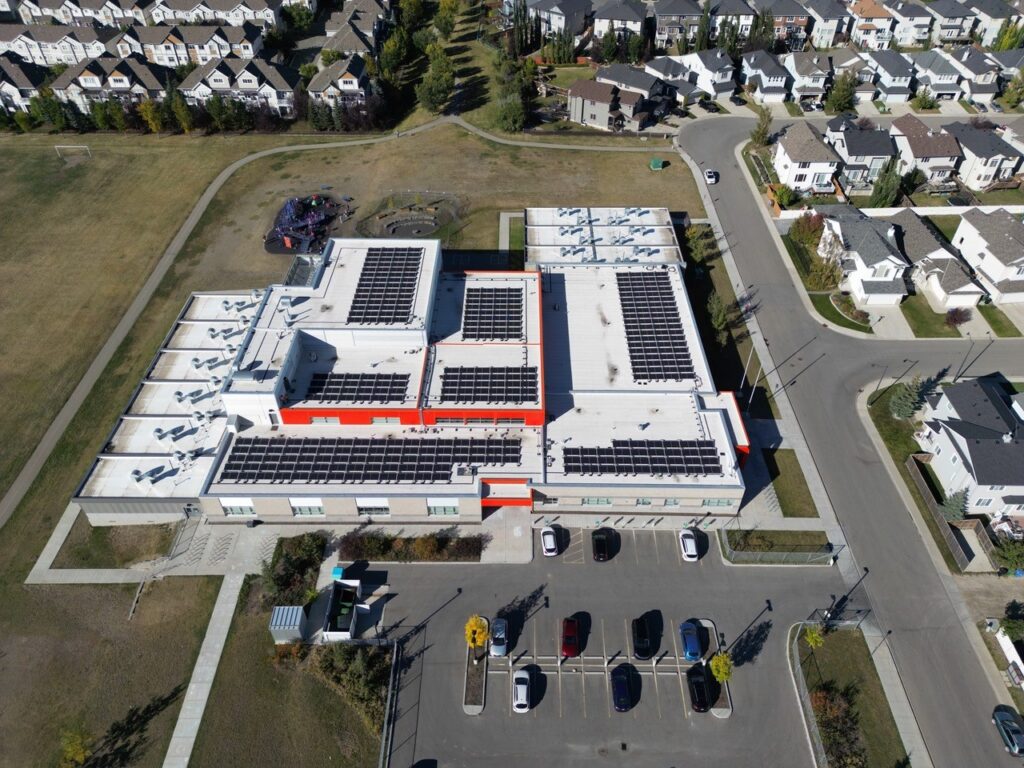
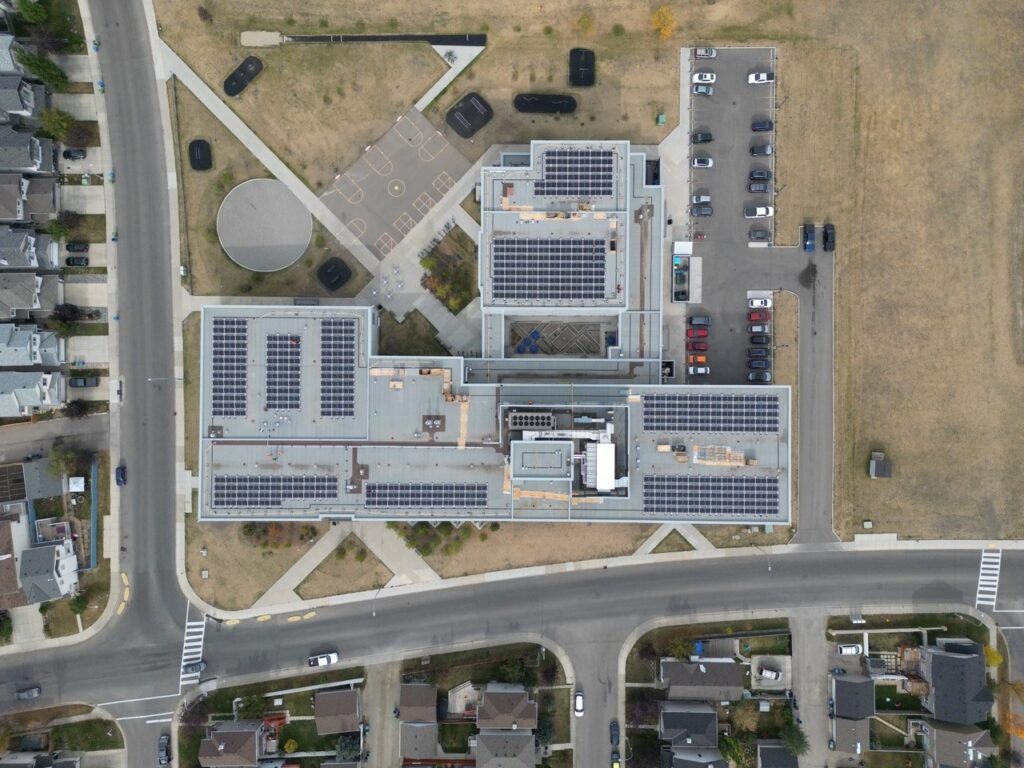
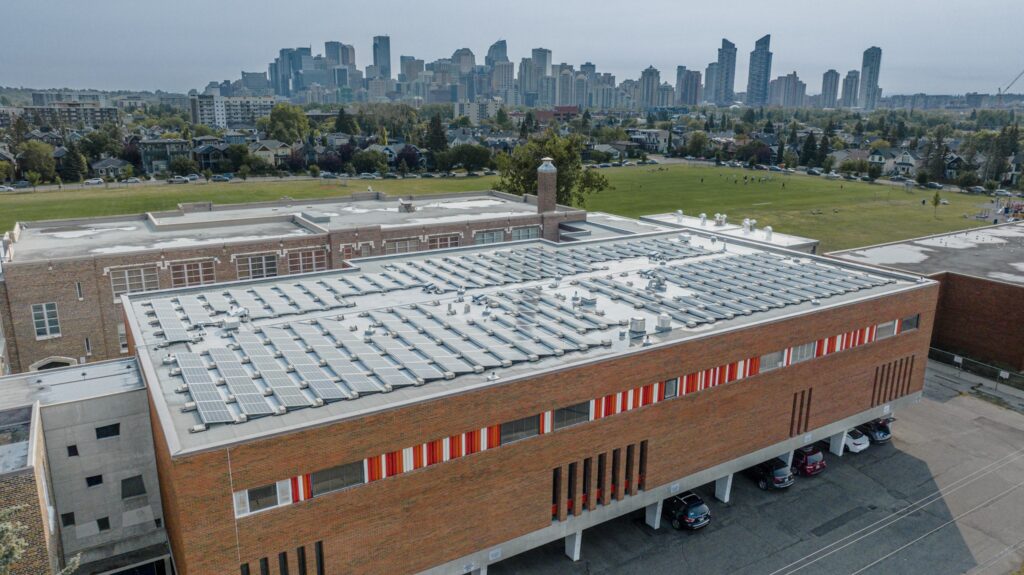

You must be logged in to post a comment.